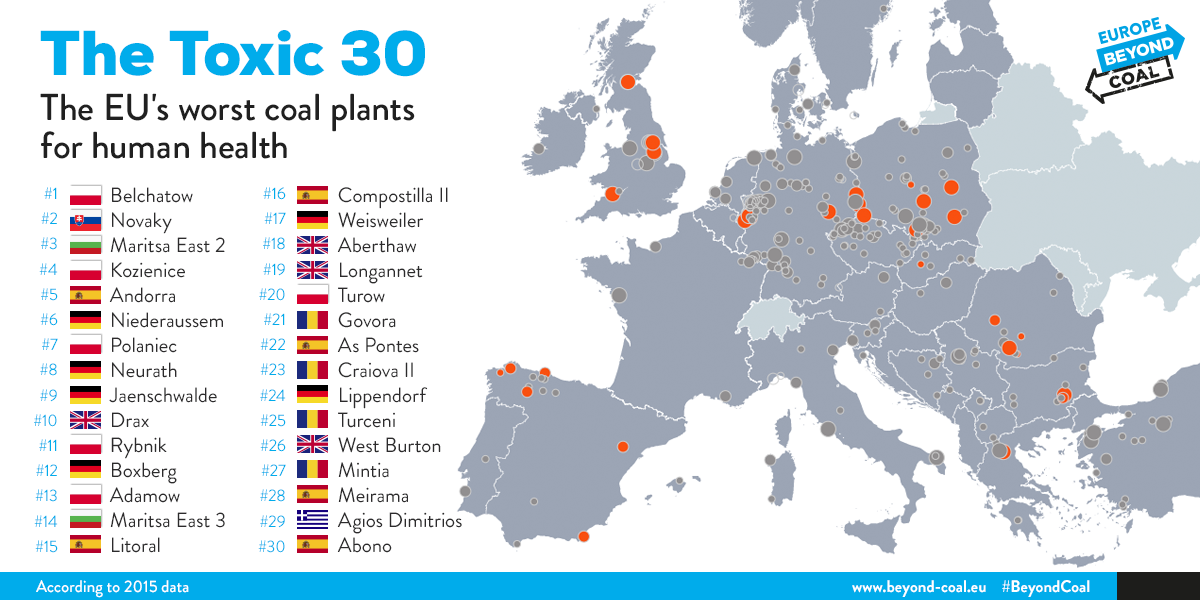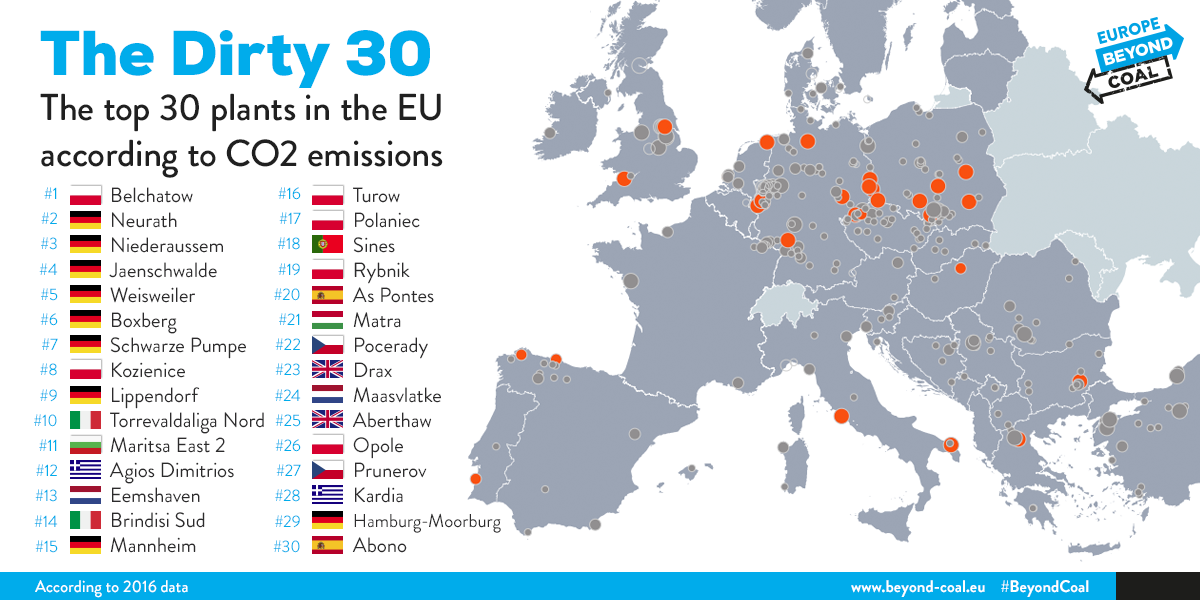I just arrived in Germany for something remarkable - today’s launch of Europe Beyond Coal, a coalition of groups from across Europe who have been working to move their countries beyond coal to clean energy. It’s a sister effort to our US Beyond Coal Campaign, and these groups are joining forces to take their work to the next level. We’ll be meeting and strategizing together this week, and then traveling to Bonn for the next round of international climate negotiations, where tensions will be high thanks to Trump’s plan to exit the Paris climate agreement -- and where our shared work to move beyond coal will be a critical engine to meet our Paris goals despite Trump.
I’ve worked to tackle coal pollution for 15 years, so for me, being part of the launch of the Beyond Coal Campaign in Europe is surreal, humbling, and profoundly inspiring. The fact is, clean air and a safe climate are essential for all of us. Because pollution doesn’t respect borders, neither do the all-too-real health consequences burning dirty coal creates around the world. With news this week that carbon pollution levels are rising rapidly in the atmosphere, we’re in a race against time to bring those emissions down -- and coal plants are the single biggest source of climate pollution.
That’s why today, Europe Beyond Coal is launching as a joint effort urging 28 European countries to dramatically accelerate their transition away from coal and toward clean, renewable energy. With the Netherlands, United Kingdom, Finland, France, Italy and Portugal committing to closing their remaining coal plants in the coming decade, Europe Beyond Coal is committed to making this transition to a healthier world as swift as possible.
We are so excited to see that the movement to take the world Beyond Coal is growing. So much great work has happened already in Europe ,and this new coalition will build on that success and accelerate its progress and ambition -- with a clear-eyed goal to ensure a coal-free Europe no later than 2030, a goal that lines up with our aim of a coal free US power grid by 2030. We have roughly the same amount of coal remaining online in the US and in Europe, and if we meet our goals on both continents, we’ll have a fighting chance of tackling the climate crisis.

Coal’s health effects in the U.S. aren’t different from those in Europe. An air pollution-induced asthma attack in the US is the same as one overseas. Coal ash in American rivers and streams is just as poisonous as coal ash in Europe’s waterways. And coal’s carbon pollution is dramatic no matter what country is comes from. Coal is deadly everywhere: Its pollution estimated to have caused 19,500 premature deaths across Europe in 2015 alone and 13,200 deaths in the US in 2009.
The tide is turning. In the US , the work of the Beyond Coal Campaign and more than 100 allied groups have helped secure commitments to retire more than half of US coal plants. We are continuing that progress despite Trump’s empty promises to bring back the coal industry. In fact, coal retirements are continuing at the same pace in the Trump years as they did during the Obama Administration. Each year, these efforts save more than 7,000 lives.
In Europe, too, people power is making the difference. With the Netherlands, United Kingdom, Finland, France, Italy and Portugal committing to phasing out their coal fleets in the coming decade, everyday people are seeing and making tangible change. Now, with the new announcement, Europe Beyond Coal is committed to making this transition to a healthier world as swift as possible. They’re also committed, as we are, to a just transition for communities and workers that have traditionally relied on coal, so that we don’t leave anyone behind as we make this necessary transition to clean energy.
The sooner this movement succeeds, the better for everyone. We look forward to increasing our collaboration with this new campaign across the Atlantic and building a better world. Check out the website of Europe Beyond Coal to learn more about their work, and join us.
